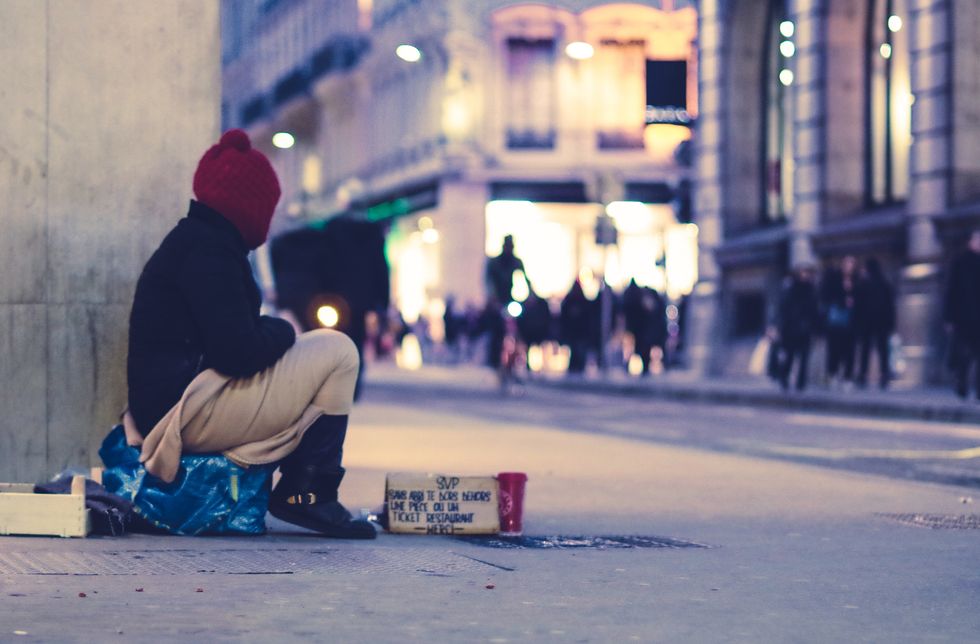23-year-old Michelle Pugh experienced being homeless for the first time at the tender age of 16. Pugh was adopted into an abusive family, and says after her older biological sister ran away from the home the physical and emotional abuse the girls were hit with only got worse for her.
“The physical abuse started more and the emotional abuse started more,” Pugh said. She believes that if she hadn’t gotten away when she did would’ve harmed herself.
“If I hadn’t run away I probably would have committed suicide. So honestly becoming homeless was probably the best thing I could’ve done for my life,” Pugh said.
Pugh’s story mirrors that of a lot of young people living on the street. According to the Minnesota Department of Human Services Biennial Homeless Youth Act Report, an estimated 6,000 young people experience homelessness on any given night.
When looking at the country as a whole the numbers get even bigger and shows how significantly great the problem is. According to the 2017 Annual Homeless Assessment Report to Congress submitted by The U.S. Department of Housing and Urban Development, on a single night in 2017, 553,742 people were experiencing homelessness.
Pugh says the system in which so many teens look to when they become homeless are often undependable, “The system doesn’t really help you either. All they see is a possible runaway that can go back home.”
This wasn’t the case for Pugh, who bounced around to different shelters before finding Nicollet Square. After aging out of the Hope Street Shelter, she was given pamphlets containing places she could stay afterwards and stumbled upon Nicollet Square. After completing the interview process, she was chosen to fill a vacancy in the apartment building, and got a job at the bakery below to help her build work readiness skills.
“Youth experiencing homelessness have chronic stress,” Connect Host Home Program Manager at Avenues Ryan Berg said, “They constantly have to worry about where to sleep at night, how to get from place to place, and how to stay involved with school or work while at the same time moving form location to location.”
Berg says institutions like Avenues knows these experiences can be traumatic for young adults, so one of the services they provide includes matching youth with mental health services right away.
Berg also says misconceptions surrounding homelessness can often prevent teens from stepping forward and asking for help. “Homelessness is not having stable housing, and that can look many different ways for many different people, so often teens don’t even want to identify as homeless.”
Volunteer and Donations Relations Manager at YouthLink Jelena Song echoes those sentiments, “In general, if you look around, young people want to look like everyone else, they want to be like everyone else, so they don’t want others knowing they’re homeless.”
One of the shifting ideas when it comes to providing a helping hand to homeless youth is to actively go into communities and educate people on homelessness.
Outreach specialist for Bridge for Youth Mimz Ogisi says her organization does a lot of tabling events to spread the word and educate the general public.
“The place that I work for has an app that has all the places youth can go to get help, so we educate people about using this app,” Ogisi said. “We also get invited to do presentations at school, so that’s our biggest way of letting people know that homelessness is an issue.”
Ogisi provides a unique perspective on the future of homelessness. Unlike many of her counterparts, she doesn’t see there being an end to homelessness, she only hopes for more viable resources. “We need to look at reasons people are homeless on a whole as far as having affordable housing.” Ogisi also expressed worries about the minimum wage rate raising, “We know that if our pay goes up, then rent will go up and people can’t afford that.”
Although she graduated from high school a couple years late, Pugh is still very much hopeful about her future, “I want to be able to help others the way I kind of wasn’t helped,” Pugh says, “I kind of want to be a voice for other people.”























